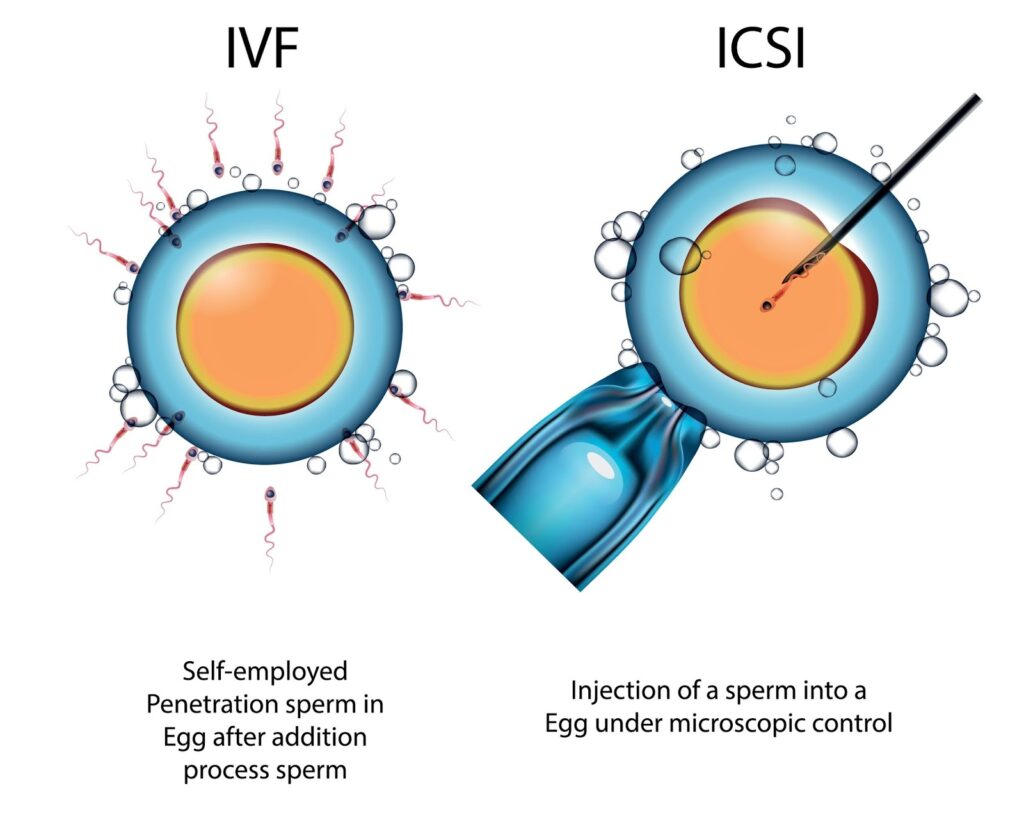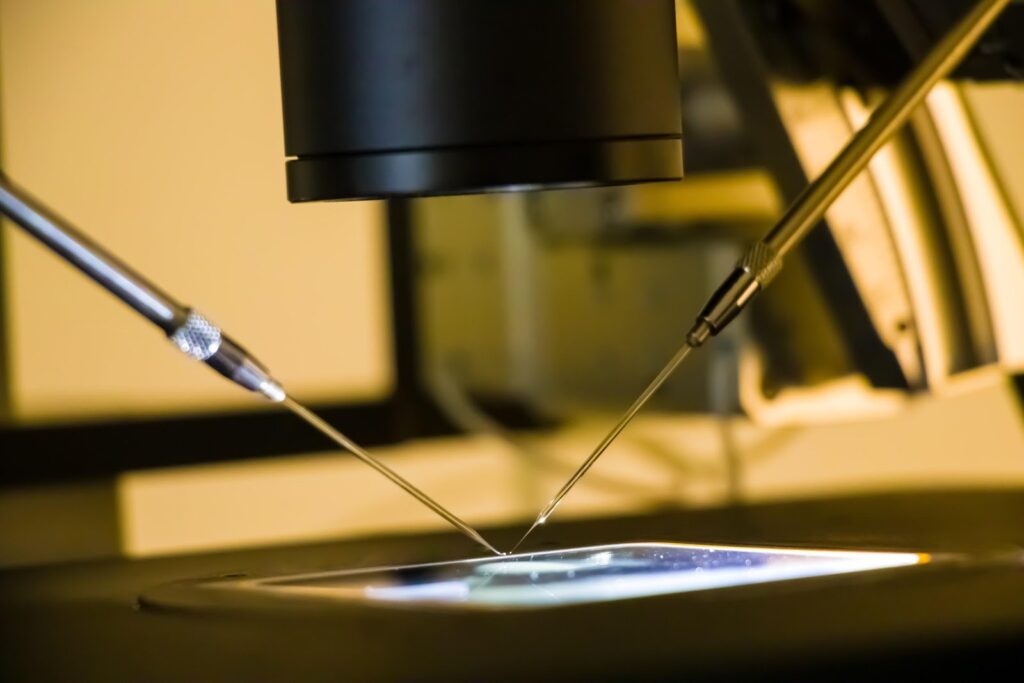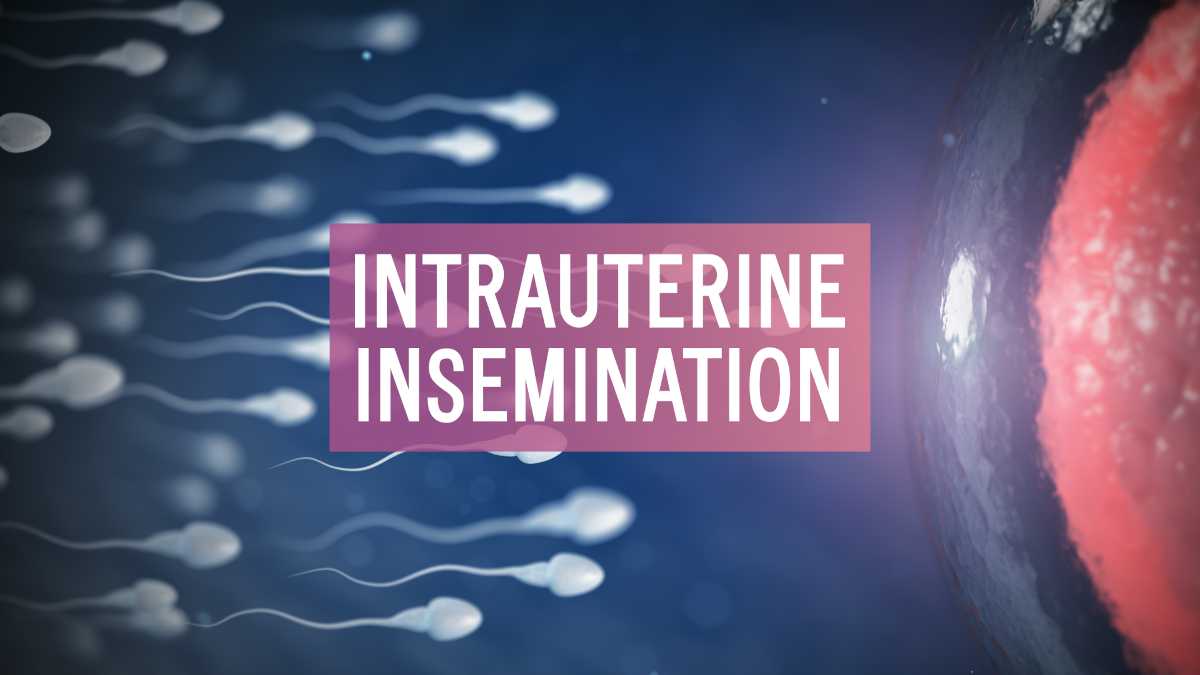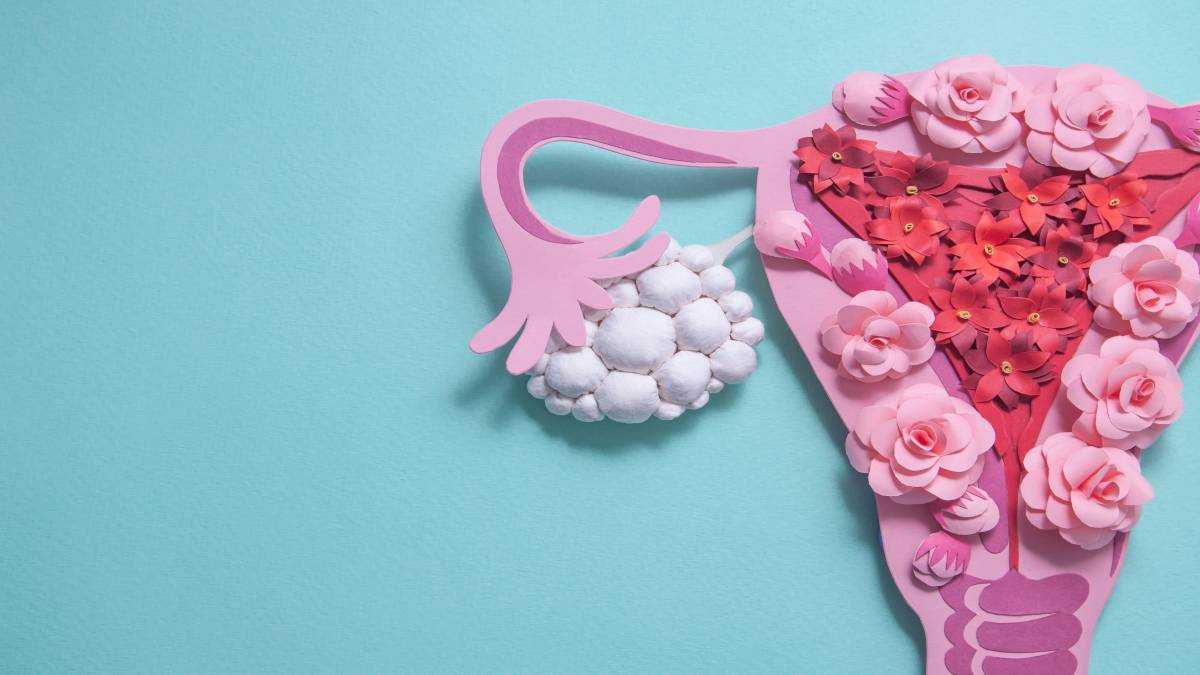The key difference between IVF and ICSI is how the sperm fertilizes the egg
In vitro fertilization (IVF) and intracytoplasmic sperm injection (ICSI) are two assisted reproductive techniques that are used to fertilize an egg prior to implantation into a woman’s womb.
The key difference between IVF and ICSI is how the sperm fertilizes the egg:
- In IVF, the multiple eggs and sperms are left in a petri dish to fertilize on their own
- In ICSI, one sperm is selected and directly injected into the egg.
ICSI differs from IVF as each egg is individually injected with a single sperm, bypassing the stage where the sperm has to naturally penetrate the egg.

How are IVF and ICSI similar?
ICSI is similar to IVF as eggs and sperm are collected from each partner or donor. On the day of egg collection, an embryologist inseminates the eggs and the following day selects out those that are fertilized. They are kept and monitored in an incubator for up to five days and the best embryos are transferred into the womb to the implant.
IVF as a technique was developed first and ICSI is a variation of this technique. From the viewpoint of a patient, not much changes with reference to scans, superovulation injections, blood tests, egg collection as well as the actual embryo transfer. The only difference is that which takes place in the lab.

IVF or ICSI, which is better for you?
ICSI is the most common and successful treatment for male infertility and where the sperm is unlikely to fertilize an egg naturally, hence this method gives additional assistance to the sperm. Hence, doctors may recommend ICSI if the male has:
- A zero or low sperm count
- An abnormal sperm shape or poor motility
- The sperm needs to be collected surgically (for example, in cases of vasectomy)
- Previous failed IVF attempts
- Sperm has been frozen
The choice of ICSI or traditional IVF is also highly dependent on the specifics of each individual case. If there are a limited number of eggs, ICSI is often preferred because it optimizes the odds as the highest quality sperm are selected.Â
Success Rates
- After fertilization occurs, success rates for couples using ICSI with IVF are the same as for a couple using regular IVF treatment.
- The success rates of each method is highly dependent on the skill of the embryologist
- Egg and sperm quality
- Overall health and causes of infertility in both partners Â
Conclusion
ICSI is a more recent technology than IVF and has been developed with male factor infertility in mind, allowing men with low sperm count or immotile sperm to father a child. However, today ICSI is widely used in fertility clinics and is the method of choice even in cases where male infertility is not a factor.
Special thanks to Dr. Archana Shrivastav (IVF Specialist) for the expert advice.










